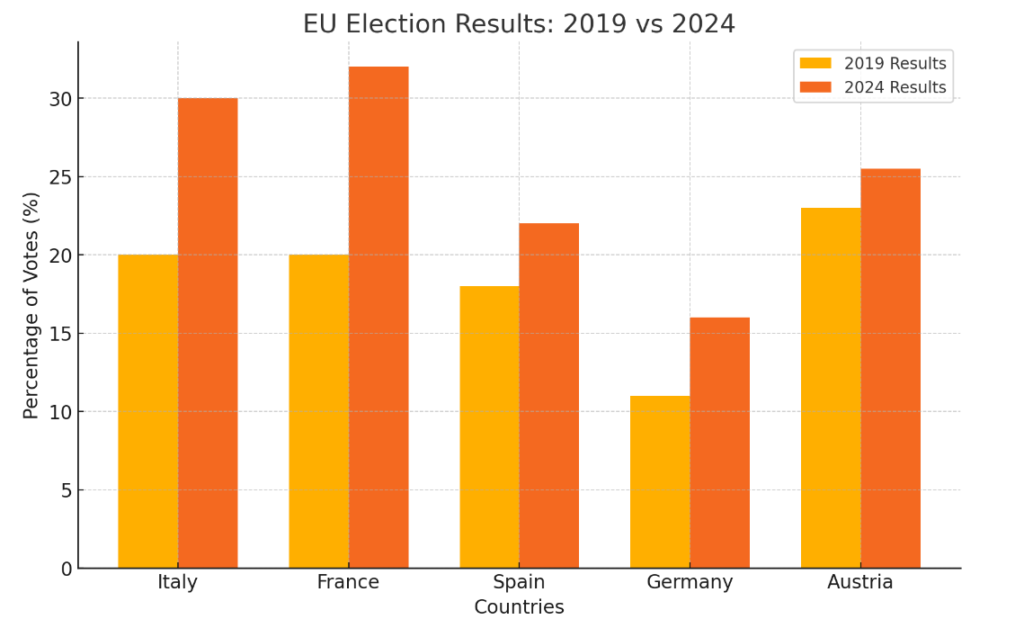The recent European Parliament elections have marked significant shifts in the political landscape across the continent, showcasing emerging trends that could redefine the future of the European Union’s policy and leadership. Here, we delve into the outcomes and their broader implications, with a particular focus on the rise of right-wing parties, and how these results might influence the EU’s path forward.

Italy: Meloni’s Triumph and Broader Influence
Giorgia Meloni and her Brothers of Italy party achieved a substantial victory in the EU elections, securing around 30% of the vote. This win not only solidifies Meloni’s position domestically but also significantly enhances her influence within the EU. As right-wing parties gain momentum, Meloni is poised to be a central figure in potentially reshaping EU policies, particularly concerning migration and economic governance.
France and Spain: Nationalist Surge and Centre-Right Gains
In France, Marine Le Pen’s National Rally outperformed President Macron’s centrist alliance, reflecting widespread dissatisfaction with the current administration. Le Pen’s victory has spurred Macron to call for snap domestic elections, highlighting the potential for significant political reorientation in France.
Meanwhile, in Spain, the centre-right People’s Party (PP) emerged victorious, signalling potential challenges for the Socialist-led government under Pedro Sanchez. These results mirror a growing trend across Europe where traditional parties are being challenged by nationalist and populist sentiments.
Central Europe: The Changing Tide
In Austria, the far-right Freedom Party narrowly led the European Parliament election, indicating a possible precursor to national elections later this year. Similarly, in Slovakia, the assassination attempt against Prime Minister Robert Fico did not sway the electorate in his favour, with his party experiencing a notable defeat.
Germany and Broader EU: A Rightward Shift
Germany witnessed a surge for the Alternative for Germany (AfD) party, reflecting a broader European trend where voters are increasingly leaning towards right-wing parties. This shift could lead to significant changes in EU policies, especially concerning environmental commitments and migration.
Implications for the EU’s Future
The election results across Europe suggest a potential pivot towards more nationalist and Eurosceptic policies. This shift could influence the EU’s approach to critical issues such as climate change, economic reform, and foreign policy. The growing influence of right-wing parties might also affect the bloc’s unity and its approach towards global challenges.
The 2024 EU Parliament elections have indeed been a litmus test for the political mood across the continent. As Europe stands at a crossroads, the increasing clout of nationalist parties could redefine the Union’s direction in the coming years, potentially challenging the cohesion and ideals that have defined the bloc for decades.




